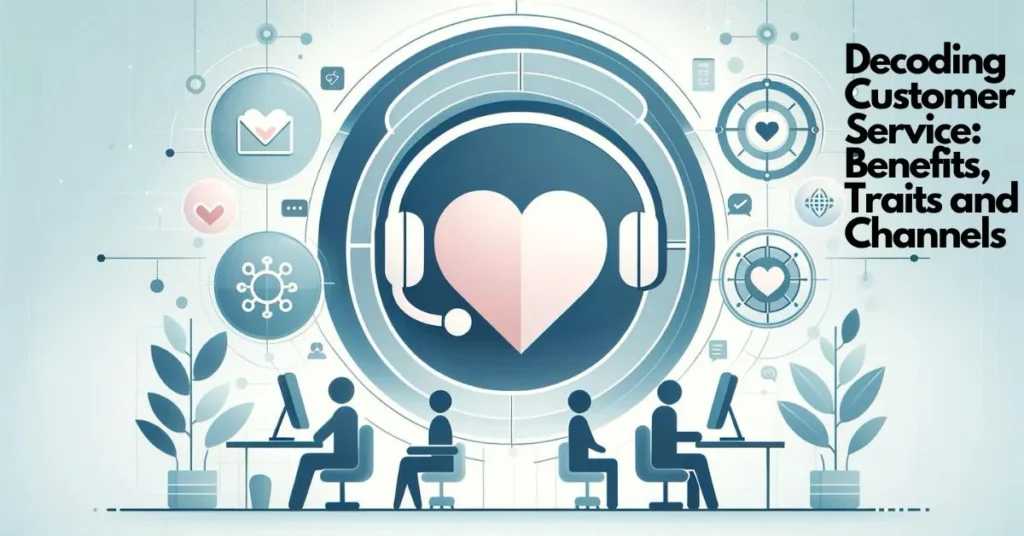Customer service is the lifeblood of any business, serving as the primary interface between a company and its customers. It encompasses a wide array of interactions, ranging from addressing inquiries and concerns to providing assistance with purchases and technical support. In essence, customer service is the embodiment of a company’s commitment to ensuring customer satisfaction and fostering long-term relationships.
Contents
Understanding Customer Service
Customer service entails the direct engagement between customers and representatives of a company. It occurs during various stages of the customer journey, including pre-purchase inquiries, post-purchase support, issue resolution, and ongoing relationship management. While automated systems and self-service options play a significant role in modern customer service, the human touch remains indispensable in many scenarios.
The dynamics of customer service encompass several key elements –
Punctuality: Swift responses to customer inquiries and problems play a pivotal role in cultivating favorable experiences. Extended waiting periods or delays in handling issues can result in annoyance and discontent.
Consistency: Smooth and effective resolution of customer concerns typically necessitates consistency throughout the interaction journey. Customers favor a streamlined resolution process over being transferred multiple times.
Customization: Adapting the customer experience to suit individual preferences and requirements elevates involvement and contentment. Personalized engagements showcase attentiveness and a sincere concern for customer welfare.
Benefits of Customer Service
Investing in effective customer service yields numerous benefits for businesses –
1. Customer Retention: Delivering outstanding customer service fosters loyalty and promotes recurring purchases. Contented patrons are more inclined to stay faithful to a brand and advocate for it to others.
2. Employee Retention: A supportive customer service environment enhances employee contentment and tenure. Workers excel in atmospheres where their contributions are appreciated and aligned with customer-focused objectives.
3. Troubleshooting and Problem-Solving: Proactive resolution of issues showcases a dedication to customer contentment and aids in preempting potential escalations. Swiftly addressing concerns bolsters customer reliance and faith in the brand.
4. Referrals and Word-of-mouth: Pleased customers act as ambassadors, spreading favorable encounters through referrals and online testimonials. This natural endorsement bolsters brand visibility and customer recruitment.
5. Brand Reputation: Exceptional customer service elevates brand esteem and nurtures a favorable image among customers and potential clients. Enterprises recognized for exceptional service enjoy a competitive advantage in the market.
6. Customer Lifetime Value: Nurturing strong client relationships extends their value to the enterprise over time. Devoted patrons contribute to continual revenue growth through repeat transactions and referrals.
7. Corporate Culture: Encouraging customer service endeavors promotes collaboration and unity among various departments, nurturing a customer-focused mindset throughout the organization. Smooth customer experiences are made possible through efficient communication and teamwork.
8. Competitive Advantage: Exceptional customer service sets businesses apart from competitors and enhances their position in the market. It acts as a distinctive selling proposition that attracts and retains customers within highly competitive industries.
Traits of Effective Customer Service
Effective customer service encompasses several key traits that contribute to positive customer experiences:
1. Customization: Adapting interactions to the unique preferences and requirements of each customer enhances engagement and cultivates a sense of connection.
2. Swiftness: Rapid resolution of customer inquiries and concerns showcases responsiveness and dedication to ensuring customer satisfaction.
3. Clarity: Honest and transparent communication establishes trust and faith in the brand, nurturing enduring relationships. Employing customer service phrases can bolster effective communication.
4. Attentiveness and Compassion: Diligent listening and empathetic responses indicate comprehension and care for customer needs and issues.
5. Proactiveness: Foreseeing customer requirements and preemptively addressing concerns showcases foresight and dedication to ensuring customer contentment.
6. Self-Service Options: Offering self-assistance opportunities empowers customers to independently resolve issues, augmenting convenience and effectiveness.
7. Responsibility: Assuming ownership of customer problems and fulfilling commitments fosters confidence and allegiance among customers.
8. Ongoing Enhancement: Soliciting feedback and adjusting to evolving customer needs and preferences reflects a commitment to continual improvement and excellence in customer service.
Customer Service Channels
Modern customer service embraces a variety of channels to cater to diverse customer preferences and requirements:
1. Phone: Traditional telephone assistance remains a widely utilized avenue for handling customer inquiries and resolving issues.
2. Face-to-face: Interactions in physical stores offer personalized assistance and support to customers through direct engagement.
3. Self-Help: Online self-service alternatives, such as FAQs and knowledge bases, empower customers to independently discover solutions.
3. Self-Guidance: Utilizing online self-service options like FAQs and knowledge bases enables customers to independently find solutions.
4. Email Correspondence: Email support offers a convenient avenue for customers to raise inquiries and receive responses at their own convenience.
5. Social Media Engagement: Social networking sites serve as platforms for instant customer inquiries, feedback, and support interactions.
6. Text-Based Communication: Customer service messaging facilitates direct interaction with customers for inquiries, updates, and support notifications.
7. Real-Time Chat: Live chat support on websites allows customers to engage with representatives and obtain immediate assistance.
8. E-commerce Assistance: Online platforms furnish information and aid to customers throughout the purchasing journey.
Conclusion
Attaining excellence in customer service extends beyond mere business strategy; it represents a dedication to fostering robust customer relationships. Its multifaceted essence, encompassing timely responses, seamless continuity, and personalized interactions, underscores its crucial role in molding favorable customer experiences. Investing in proficient customer service reaps rewards such as improved retention rates, efficient issue resolution, and bolstered brand reputation. Key traits like personalization, speed, transparency, and continuous improvement guide organizations in excelling at customer satisfaction.

